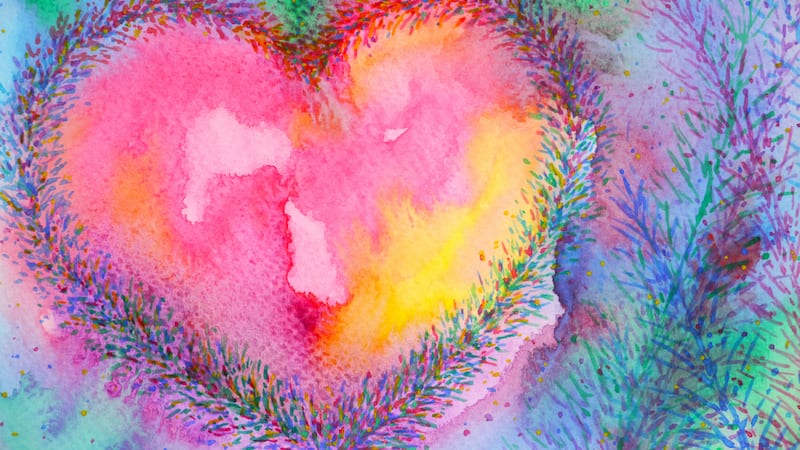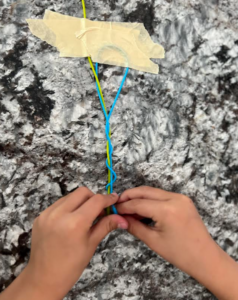Teachers, How Can We Care for Our Mental Health Right Now?
We’re living through history, and the emotions are intense.

Wow.
If you’re anything like me, you’re experiencing a lot of different emotions right now. But chances are we are all marveling at how different the world looks than it did a few weeks, days, even hours ago. Big events canceled. Travel bans. School closures. Toilet paper becoming the nation’s hottest commodity.
This post is not about health measures or containment or COVID-19 symptoms. It’s not about curriculum or technology recommendations or teaching remotely. I’m not going to talk about flattening the curve or social distancing or exponential growth. There are 900 million other articles, posts, and podcasts for that.
This is about taking care of yourself and your mental health during COVID.
I love teachers, and even in the best of times I’m concerned about our self-care. But now, at a time when we’re all taking on the stress, anxiety, and fears of how a global pandemic will affect our children, it’s more critical than ever to remember that we cannot effectively take care of other people if we are not taking care of ourselves.
1. Be kind to yourself.
We are all learners here. This situation is new for all of us, and that means new emotions, new reactions we didn’t know we’re capable of, new fears, new bodily functions (hello, stress burps, I guess you’re a thing now). Would you be hard on the young people in your classroom learning new, tough information? Of course not. So don’t put any more pressure on yourself to learn this new way of living than necessary.
Also, I’m going to say something that could be controversial here: I don’t think those of us teaching remotely should exhaust ourselves trying to drum up ways to make learning exactly the same or better as it was in our classrooms before we left. Will we have to do things differently? Yes. Could this be an awesome opportunity for all of us to learn platforms and tools? Yes. But are our students already dealing with more stress than we could imagine? ALSO YES. They are a a generation who is aware of EVERYTHING because of the Internet and social media. But their frontal lobes are still developing, leaving them with tons of information but perhaps not a lot of emotional capacity to handle or process this in a healthy way. In short: don’t put more pressure on yourself than necessary to put on a dog-and-pony show during tough times. Simple is OK.
2. Keep your hands busy.
One of the best pieces of advice I ever received when I was super anxious a few years ago was to keep my hands busy. There’s science behind it, I promise. And, when I’m doing something tactile, it’s hard for me to think too hard about anything, really. And not in the way that I zone out when I’m scrolling Instagram like a zombie, but more of a mellowing out that happens when I truly plug into creativity. My top recommendations:
- Puzzles! Y’all. I’m obsessed. My favorite brands are Galison and Mudpuppy. (Yes, I have puzzle brands.)
- Embroidery. Look up this old-made-new trend on Pinterest. So many fun ideas!
- Calligraphy
- Other recommendations: making bread or something else hand-intensive, drawing a mandala, painting or making a collage, playing an instrument (what a great time to learn on YouTube!)
3. Move your body.
Don’t worry about strenuous exercise right now if that’s not your jam. But I think it’s good for all of us to make moving a regular habit (especially if we are teaching remotely and not up out of our seat all the time like a regular school day). Go for a walk if you can. Take a fitness class on YouTube (Yoga with Adriene is a personal fave). Have an impromptu dance party to your favorite song. Ultimately just get the blood flowing and the endorphins pumping.
4. Calm your mind.
This looks different for all of us, but it’s super important to give your mind a break from the barrage of information out there. I don’t know if there has been a better time to download the Calm app (it’s free for teachers!) With guided meditations, nature playlists, relaxing songs, and bedtime stories, you’ll wish you’d have done it a long time ago. But whatever you do, try not to simply distract yourself, but truly disconnect and let your mind “be” for a while. It’s working overtime these days.
5. Laugh.
A global pandemic is obviously very serious. But so is your mental health during COVID. As anyone who has ever cared for a family member with Alzheimer’s will tell you, sometimes you have to laugh in the midst of a terrible thing. Gloria Gaynor washing her hands to “I Will Survive.” Relatable tweets like this one:
But if you’re overwhelmed with COVID-19 information—even humor—this is my official plug for the TV show King of the Hill on Hulu. I did not think I would find this show funny, and I have laughed myself to tears. You’re welcome in advance.
6. Stay connected in the right ways.
Use the technology we do have—FaceTime, WhatsApp, Skype—to check in with people remotely. Kelly Wickham Hurst, an educator I follow on Twitter (@mochamomma) had a great suggestion of using each other’s names as often as possible when in social isolation. Check in on your neighbors, the elderly people you know (especially those living alone), and others in vulnerable populations. And if social media is overwhelming you, by all means, disconnect for a while. You will know when you’re overwhelmed. You’ll be at the grocery store and see a long line of people waiting to grind coffee, and you’ll turn to your fiancé with wild eyes and say, “I can’t do this!” Or at least that’s what I did.
How are you taking care of your mental health during COVID closures? Come and share in the WeAreTeachers HELPLINE group on Facebook.


No comments:
Post a Comment